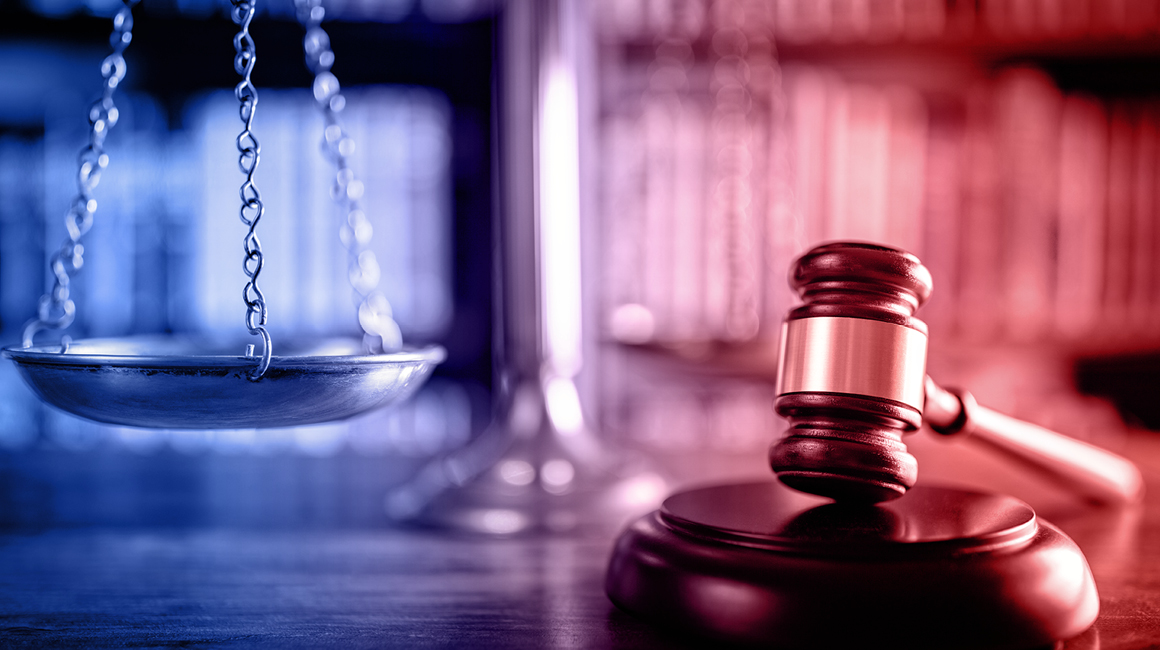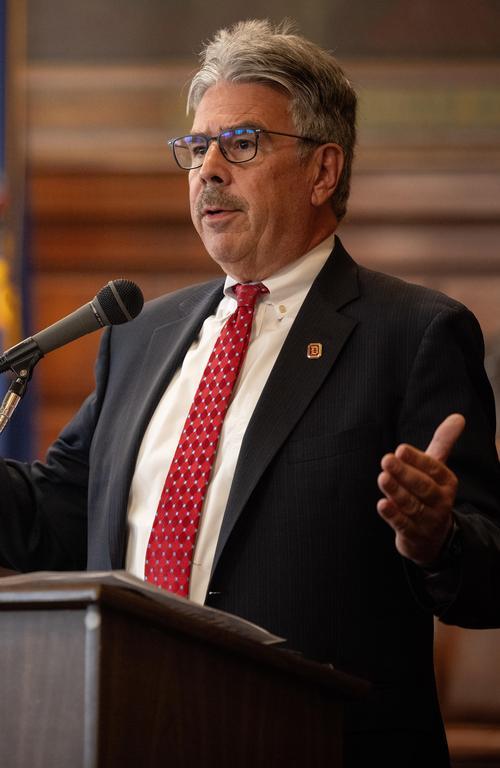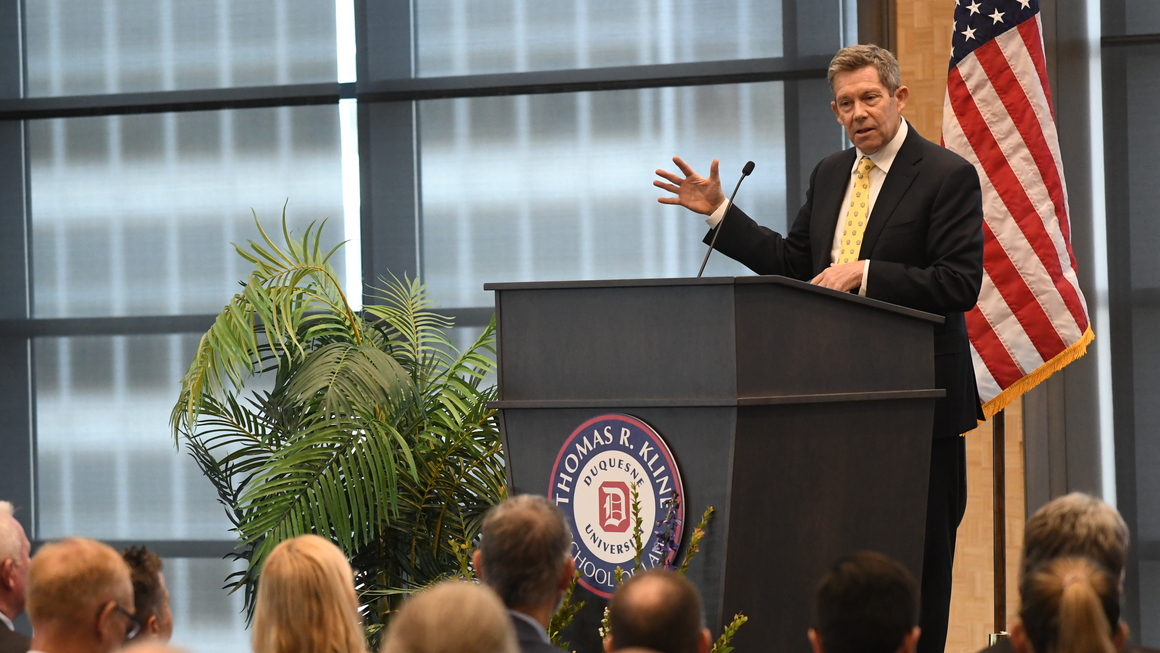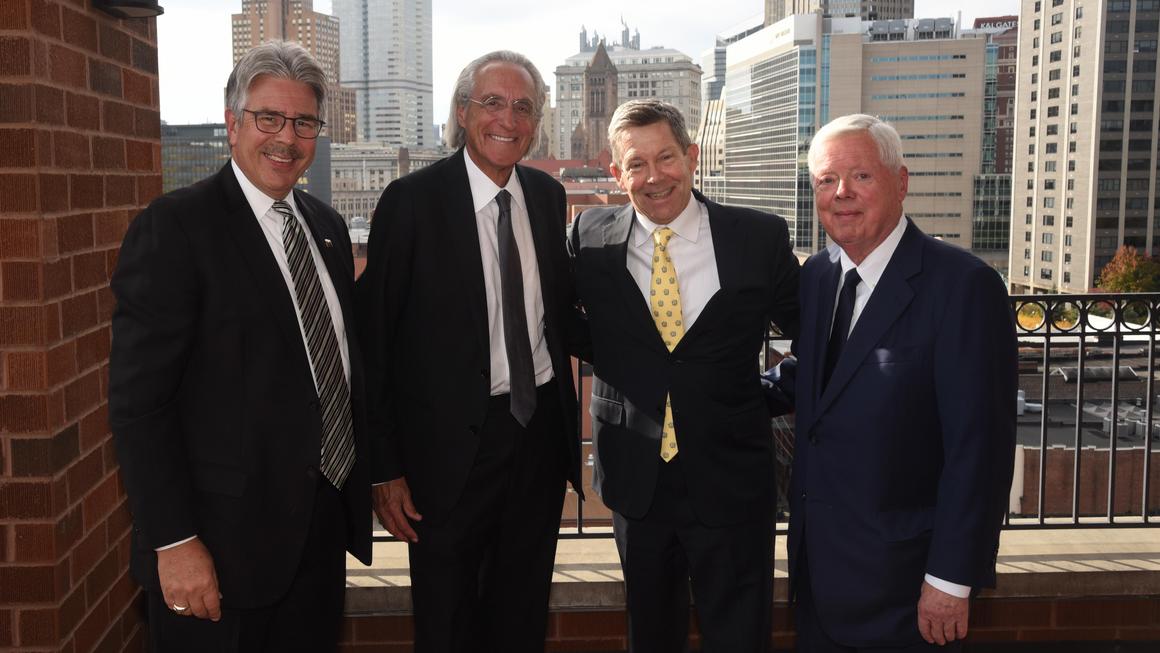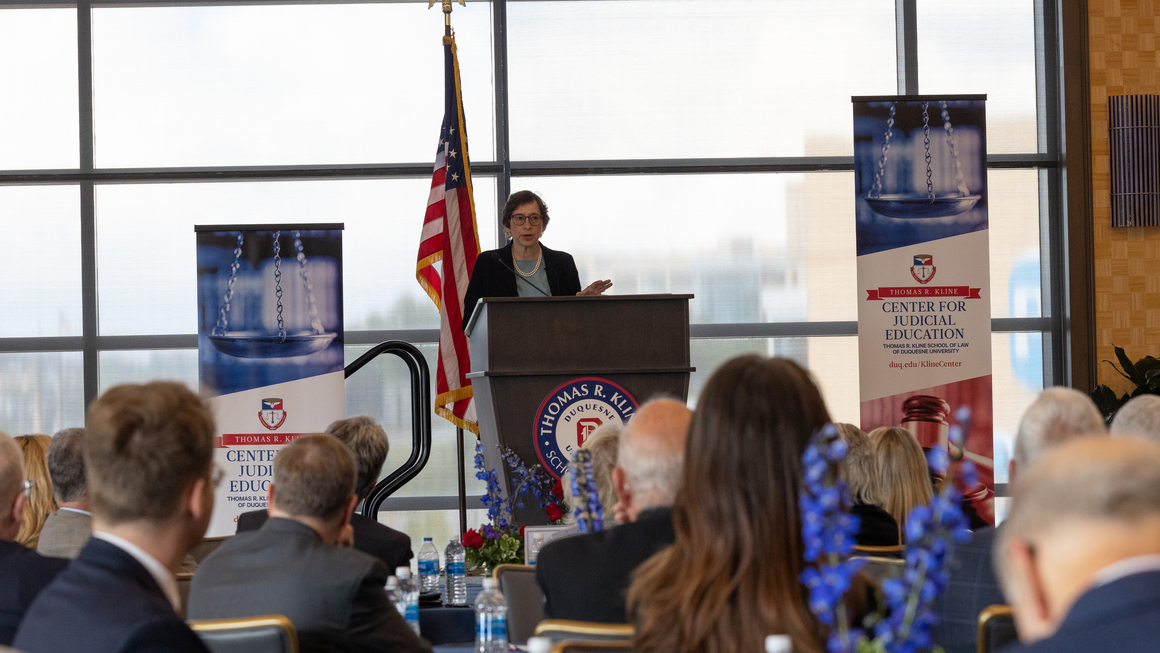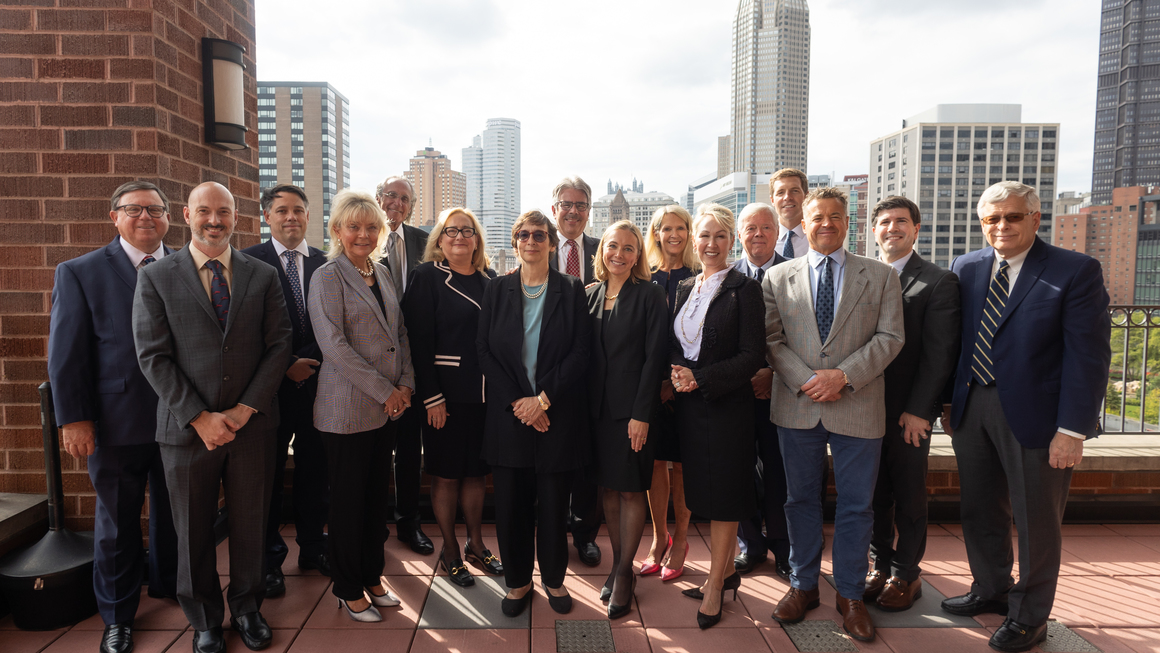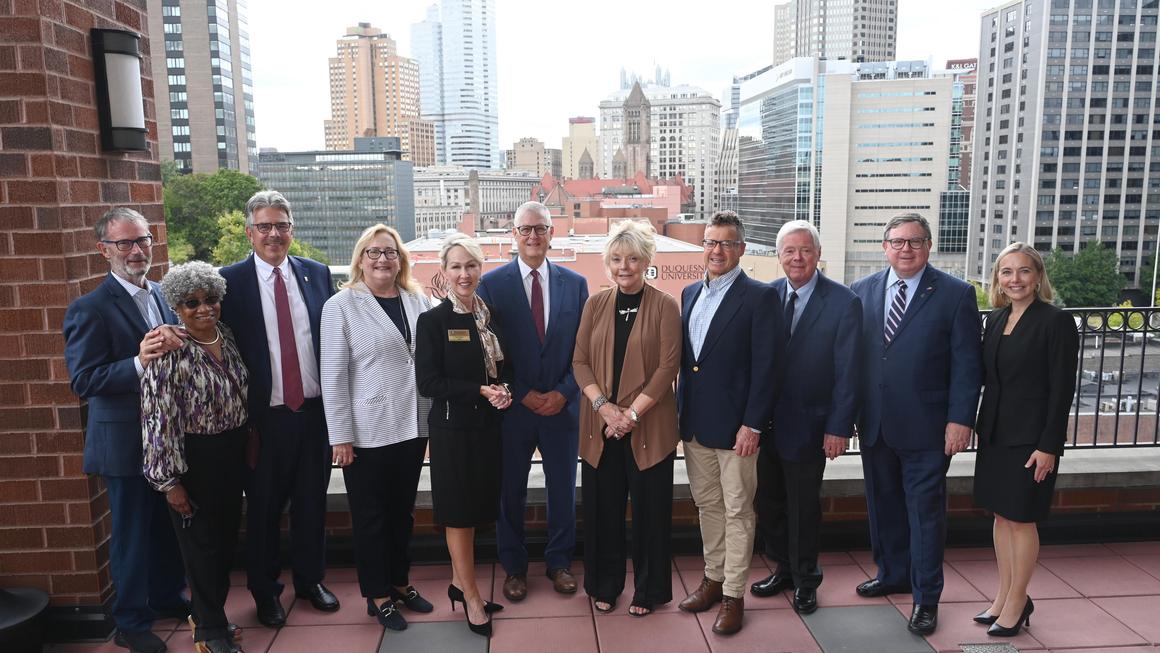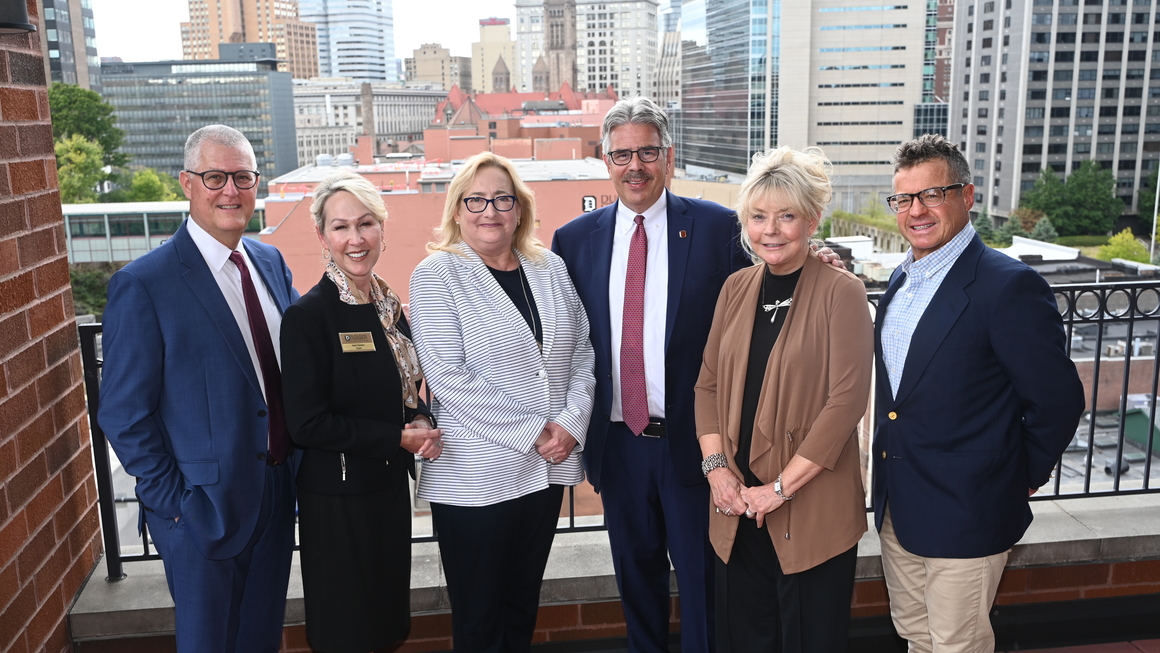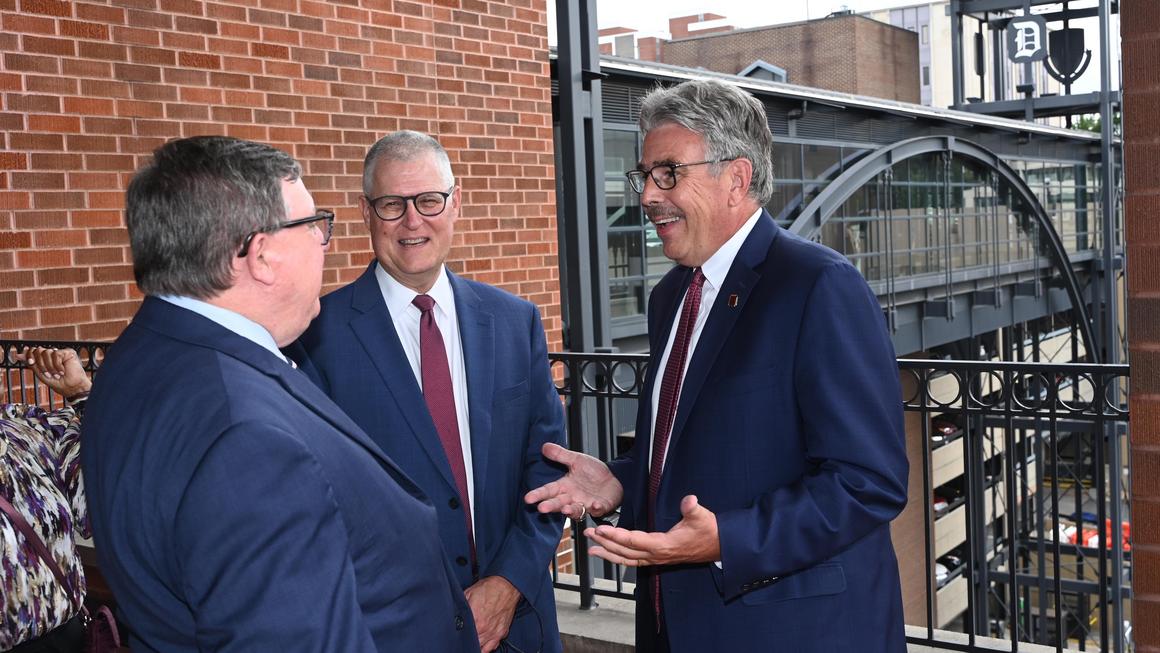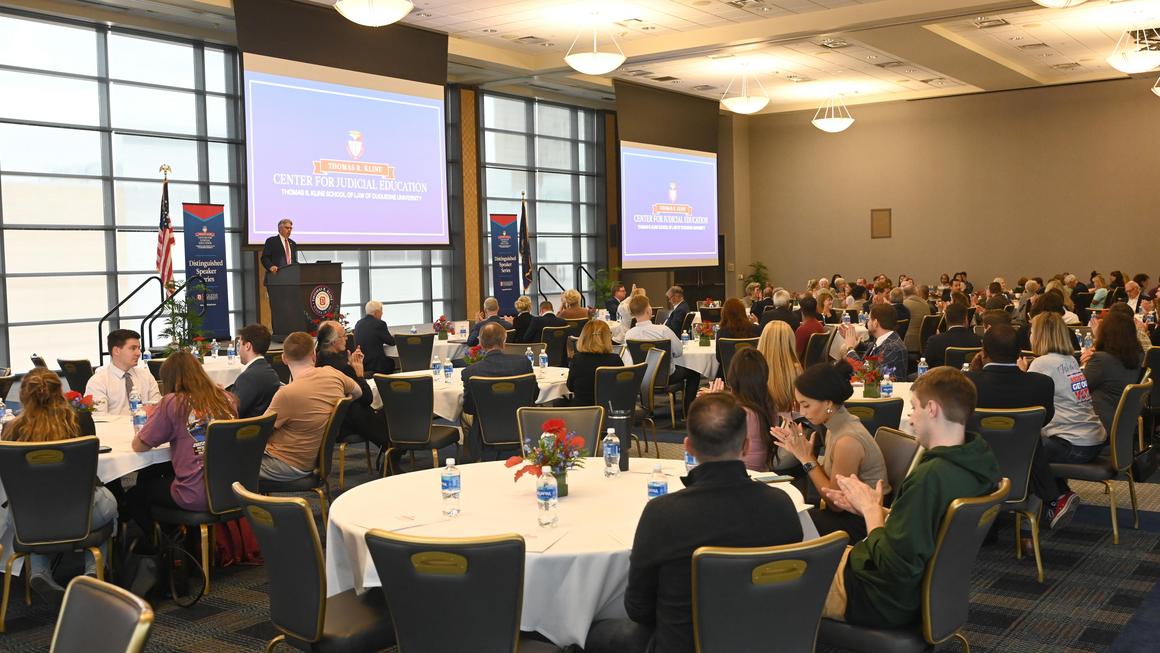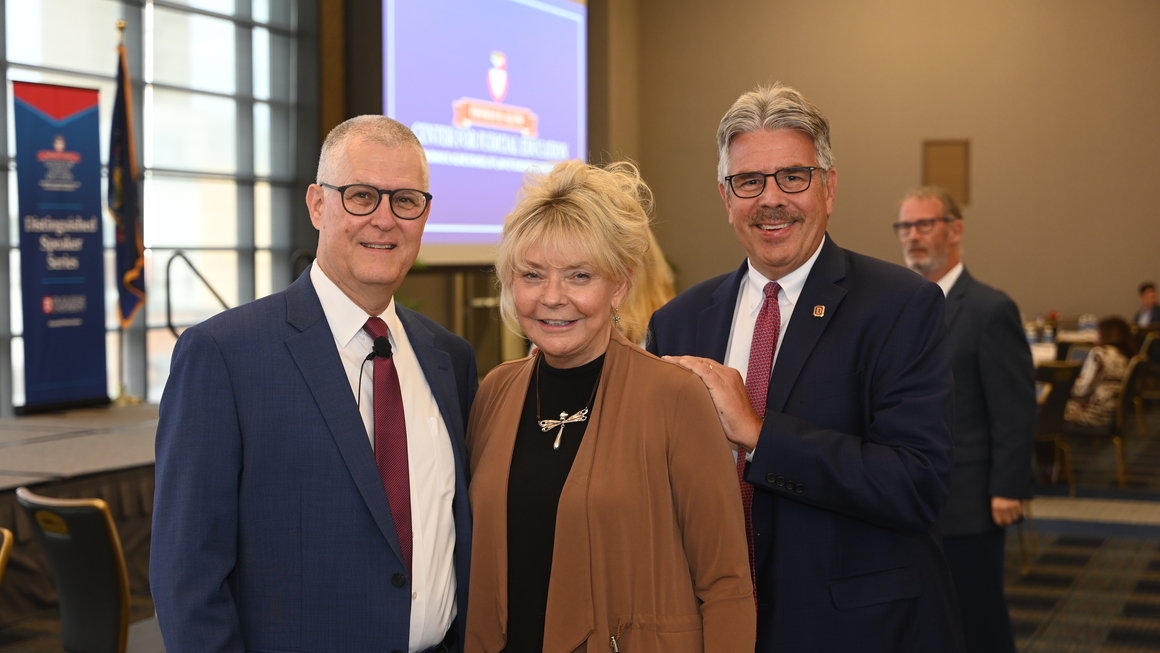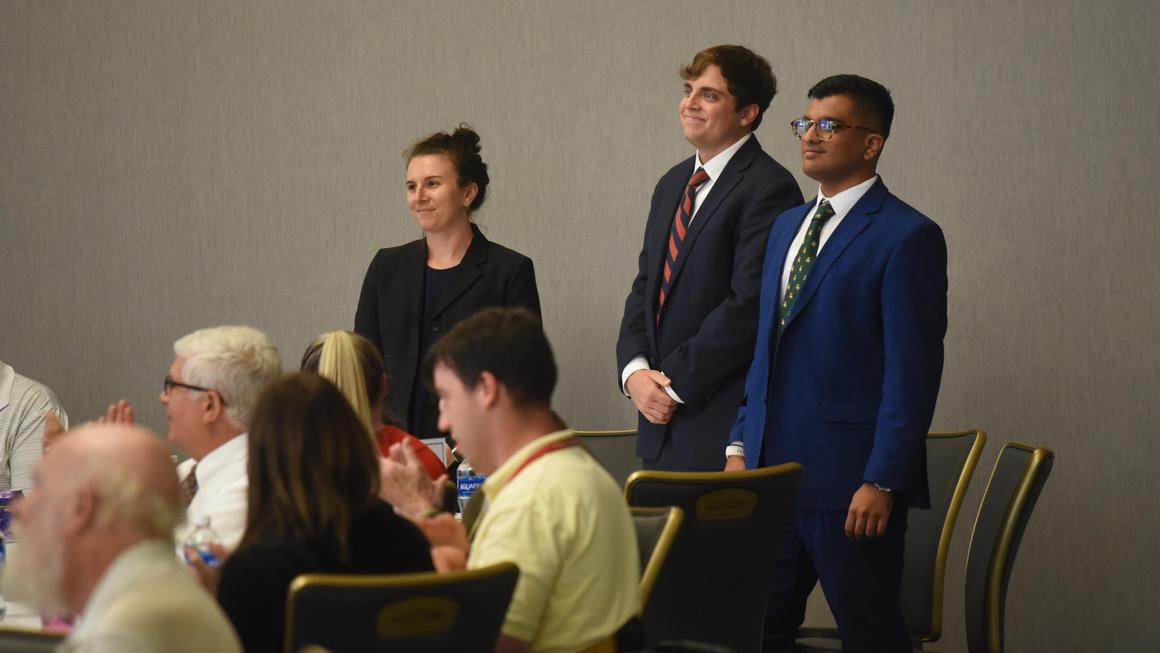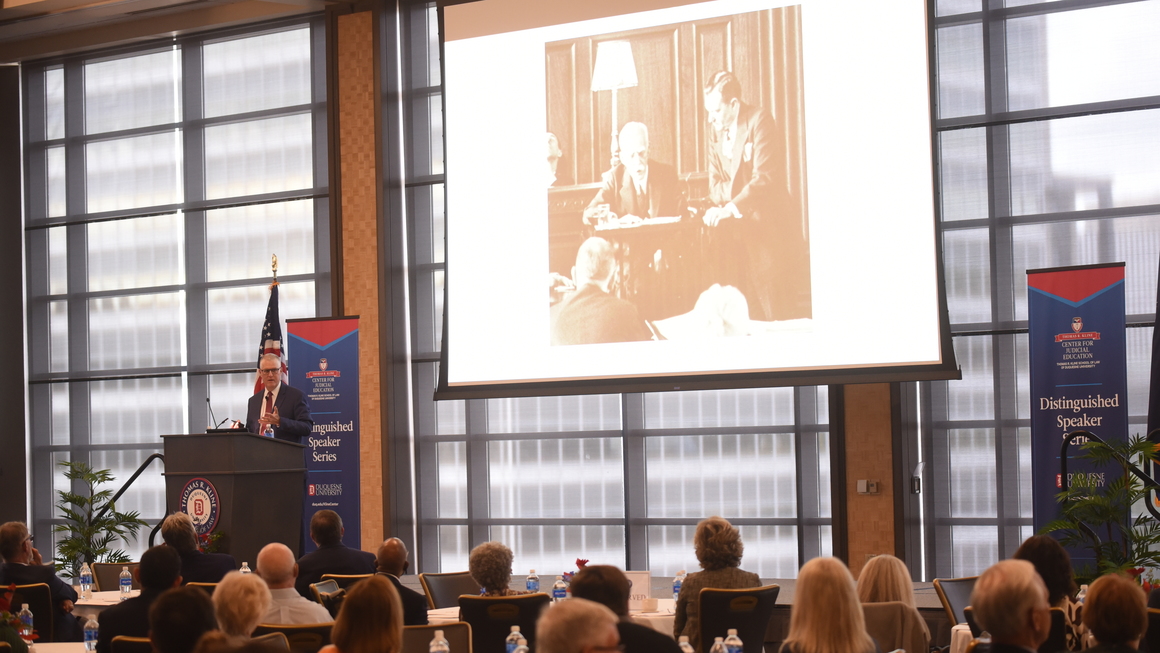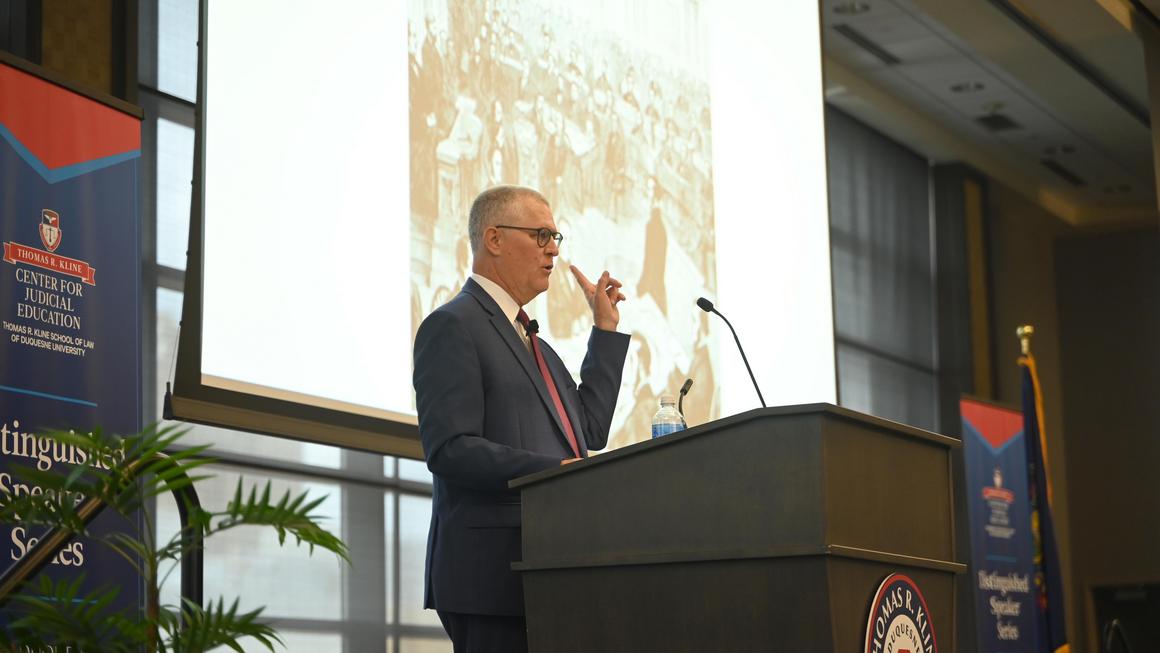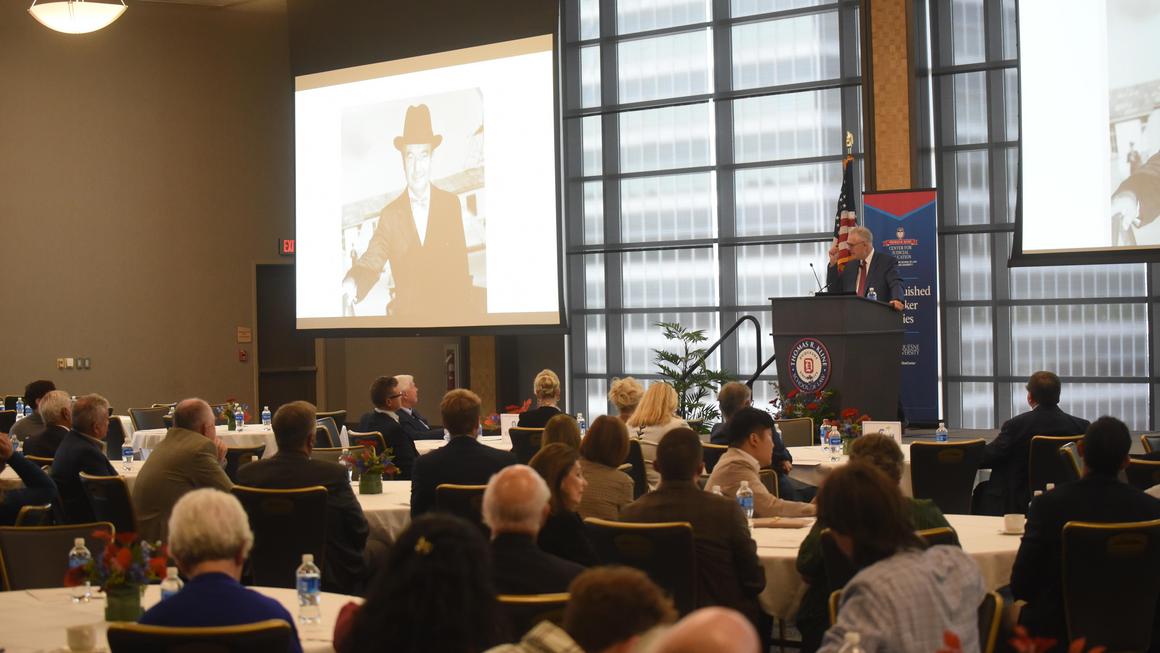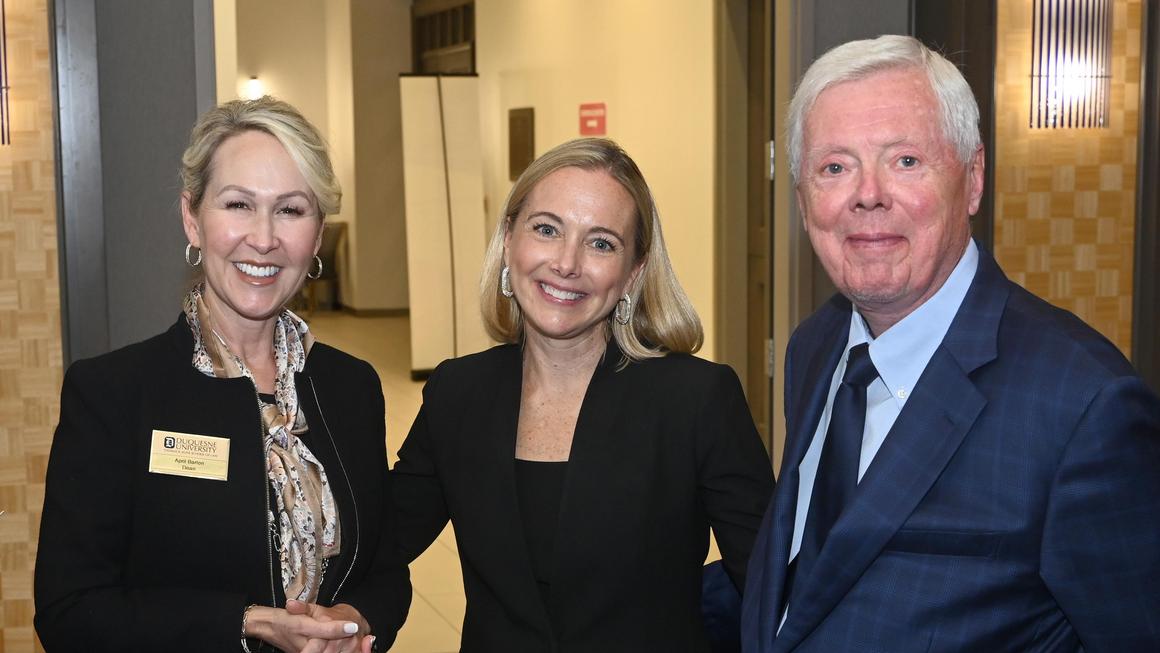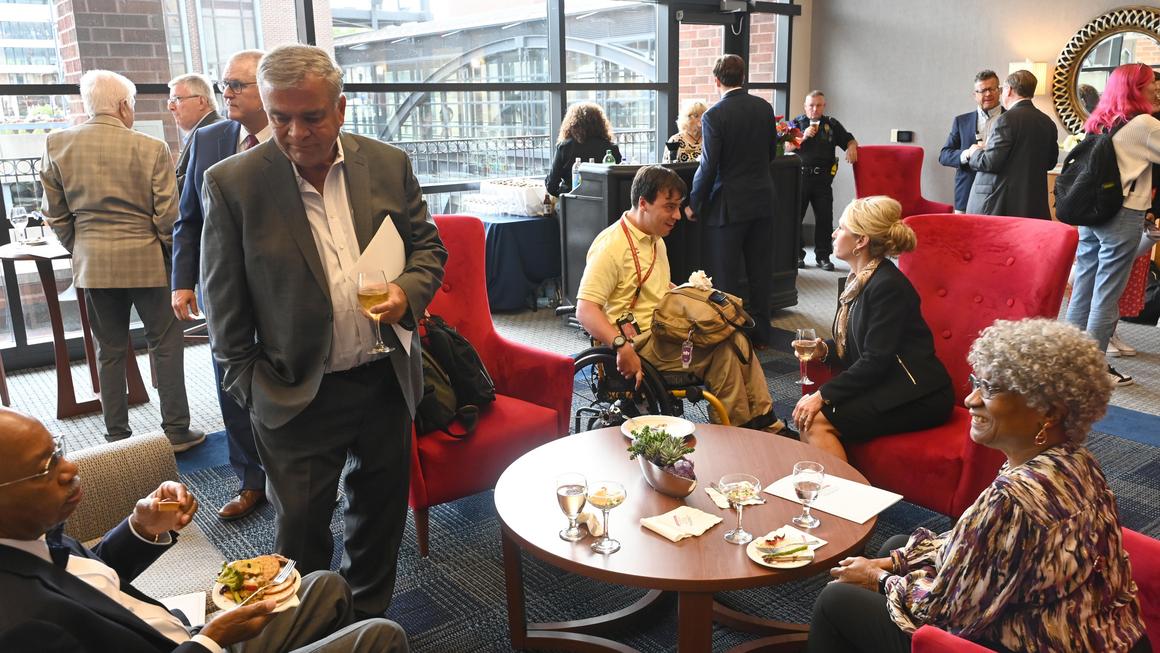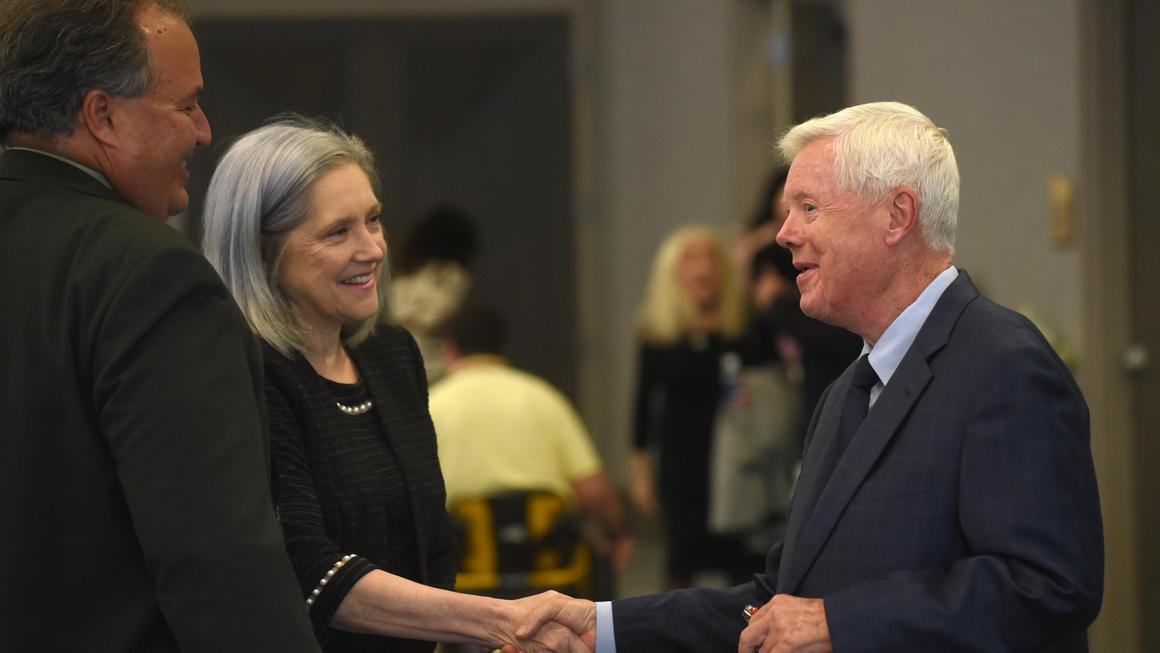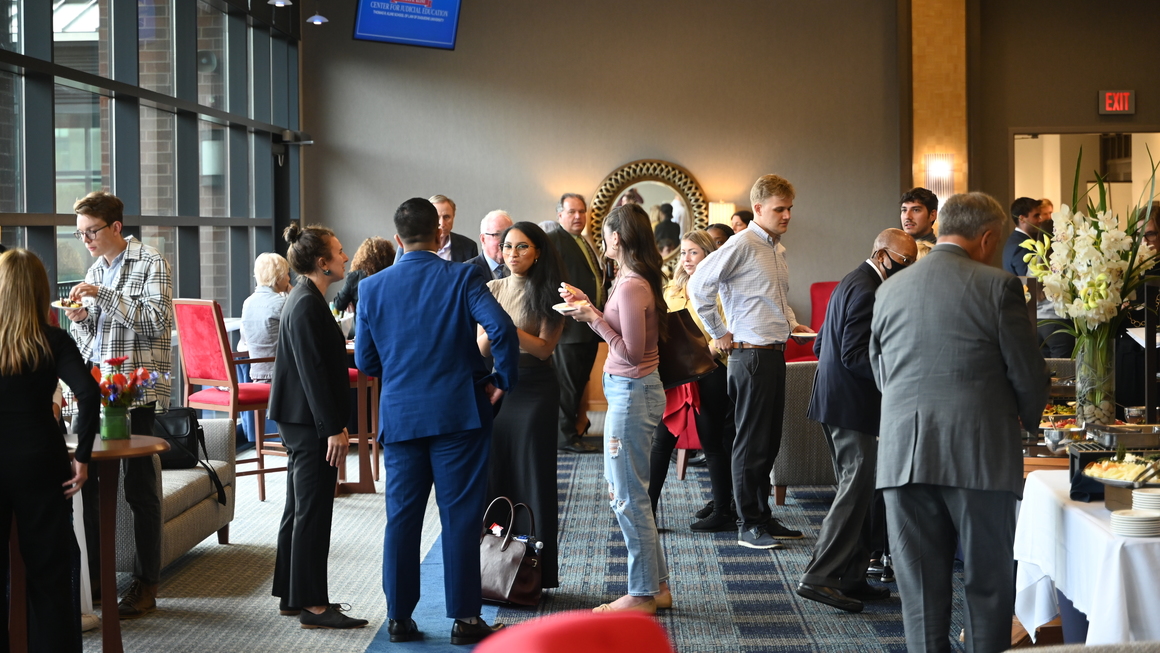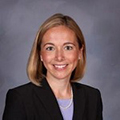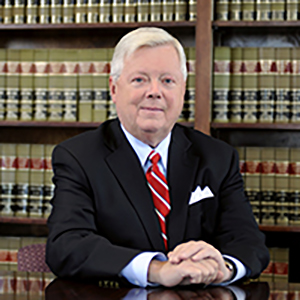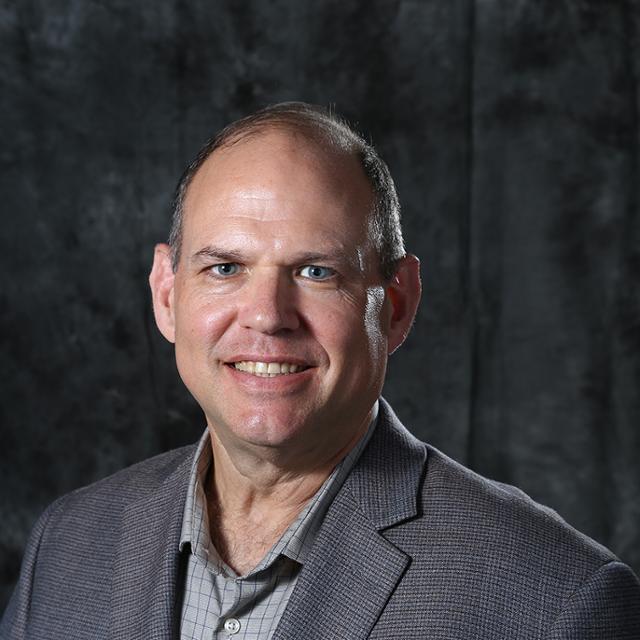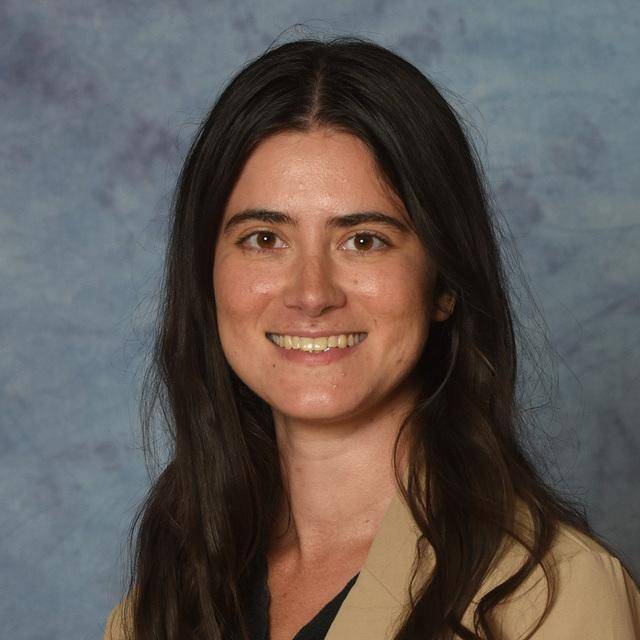Kline Center for Judicial Education
The Thomas R. Kline Center for Judicial Education at the Thomas R. Kline School of Law of Duquesne University supports the Supreme Court of Pennsylvania in its ongoing efforts to enhance the administration of justice through high quality continuing education for judges of the Commonwealth.
In addition to its core mission in Pennsylvania, the Kline Center also offers select judicial education programs to judges nationwide, broadening its reach to meet the evolving educational needs of the judiciary across the country.
Thomas R. Kline School of Law of Duquesne University alumnus Thomas R. Kline gave $7.5 million in 2017 to establish the innovative center at his alma mater. Most recently, Kline committed $50 million to provide transformational support to Duquesne's 111-year-old law school. His gift constitutes the single largest commitment to Duquesne in its 144-year history. Kline is a 1978 Duquesne Law graduate, founding partner of the firm Kline & Specter, PC, in Philadelphia, and one of Pennsylvania's most successful trial attorneys.
"The best program in my 26 years of being a judge."
The National Constitution Center, Duquesne University, and the Pennsylvania Commission
on Judicial Independence are proud to present a video and accompanying discussion
questions for Constitution Day, Wednesday, September 17, 2025, on the vital topic
of the importance of judicial independence in our Constitutional democracy. The video
features retired U.S. Supreme Court Justice Stephen Breyer in conversation with Duquesne
University President Ken Gormley (a Constitutional scholar) with introductory remarks
by Jeffrey Rosen, President and CEO of the National Constitution Center. Created for
a 50–60-minute class period, this prepackaged video and set of discussion questions
can be used to fulfill the Congressional mandate for educational programming on this
day.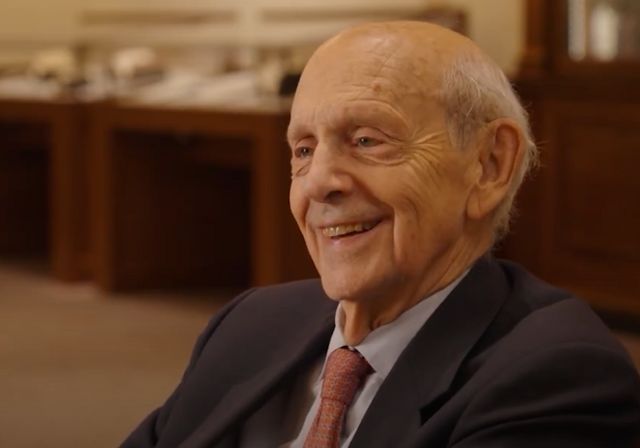
Judicial Independence in our Constitutional Democracy
Recent Program Highlights
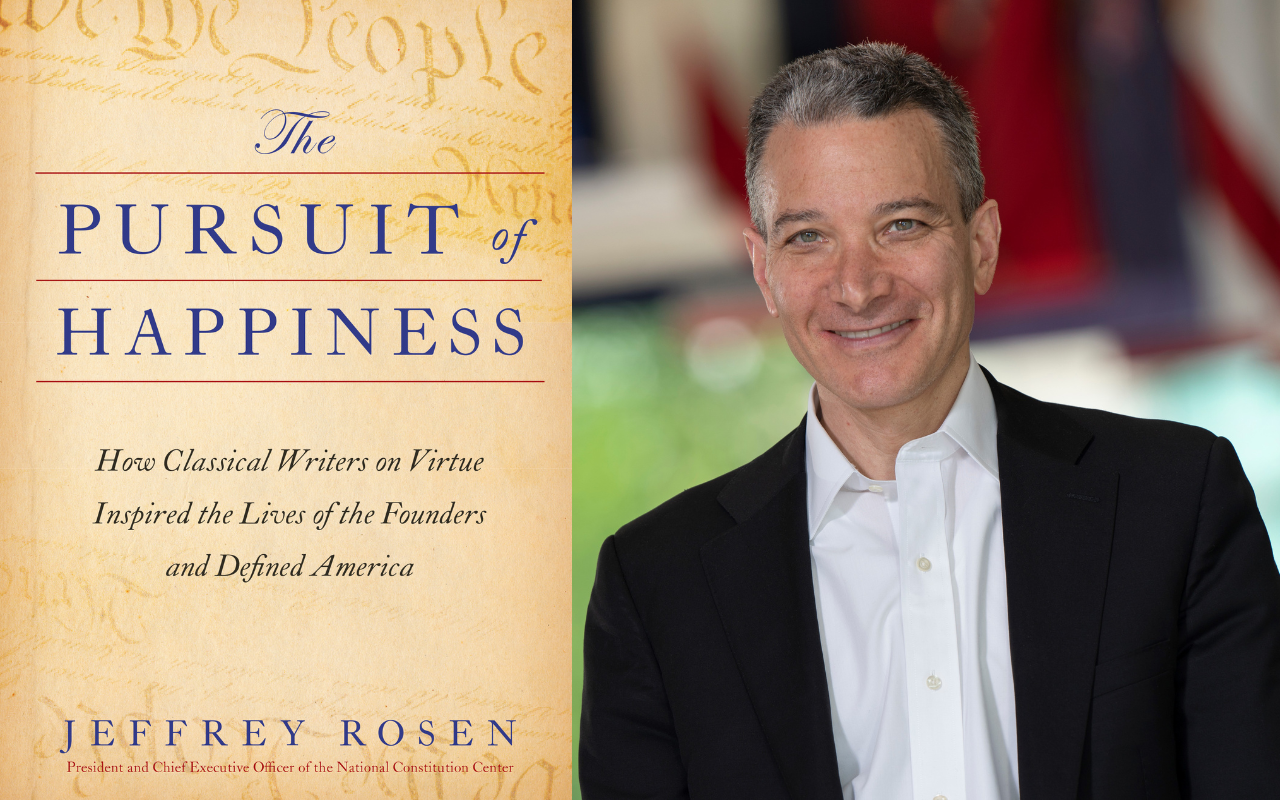
Book Talk with Author Jeff Rosen
In May 2025, the Thomas R. Kline Center for Judicial Education hosted its third annual Book Talk Continuing Judicial Education Program. This year's featured author was Professor Jeffrey Rosen, President and CEO of the National Constitution Center, who discussed his acclaimed book, The Pursuit of Happiness: How Classical Writers on Virtue Inspired the Lives of the Founders and Defined America.
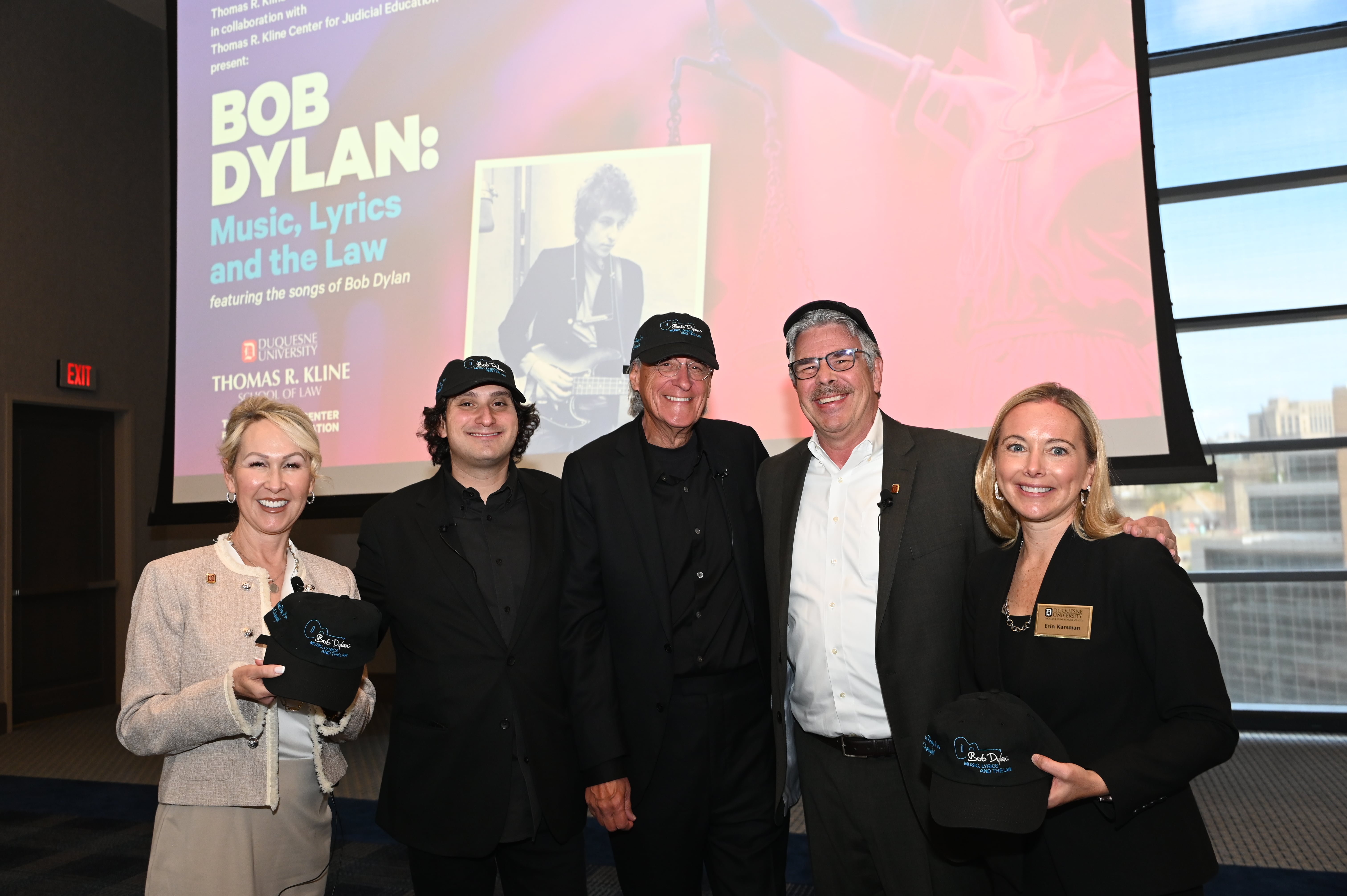
Bob Dylan: Music, Lyrics, and the Law
In April 2025, the Thomas R. Kline Center for Judicial Education hosted Bob Dylan: Music, Lyrics, and the Law, an innovative Continuing Judicial and Legal Education program attended by over 250 judges and lawyers. Led by Thomas R. Kline (L'78) and his son Zac Kline, a playwright and lawyer, the session analyzed Dylan's lyrics through ethical and legal lenses. The Klines, who have attended more than 100 Dylan concerts across six countries and three continents, shared their expertise alongside a live band featuring two Duquesne Mary Pappert School of Music graduates, who performed Dylan's music throughout the event.
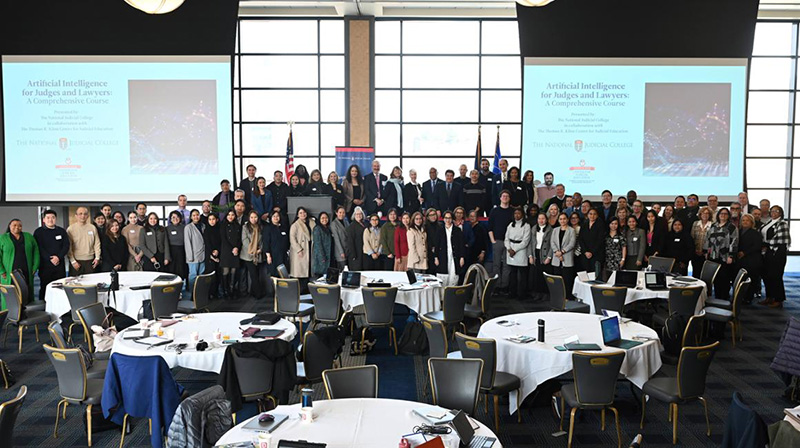
Featured National Collaboration
Nearly 100 judges and attorneys from across the globe convened at the Thomas R. Kline School of Law of Duquesne University from December 2-5, 2024, for a four-day conference entitled “Artificial Intelligence for Judges and Lawyers: A Comprehensive Course.” The innovative and informative conference outlined the intersection of Artificial Intelligence (AI) and the law. It was a collaboration between the Thomas R. Kline Center for Judicial Education and the National Judicial College.
Past Program Highlights
Distinguished Speaker Series
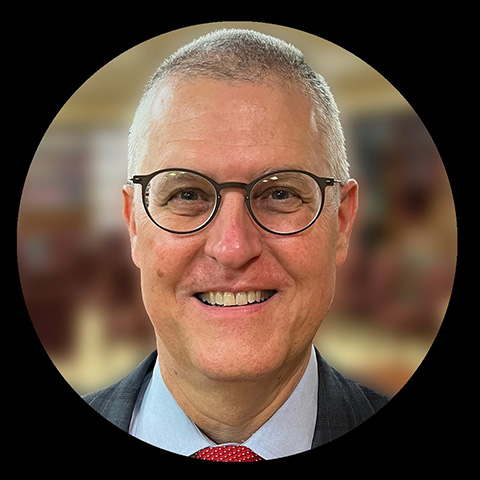 “Justice Robert H. Jackson and the U.S. Supreme Court's Path to Brown v. Board of
Education"
“Justice Robert H. Jackson and the U.S. Supreme Court's Path to Brown v. Board of
Education"Benjamin N. Cardozo Professor of Law at St. John's University
Elizabeth S. Lenna Fellow at the Robert H. Jackson CenterSee It In Action
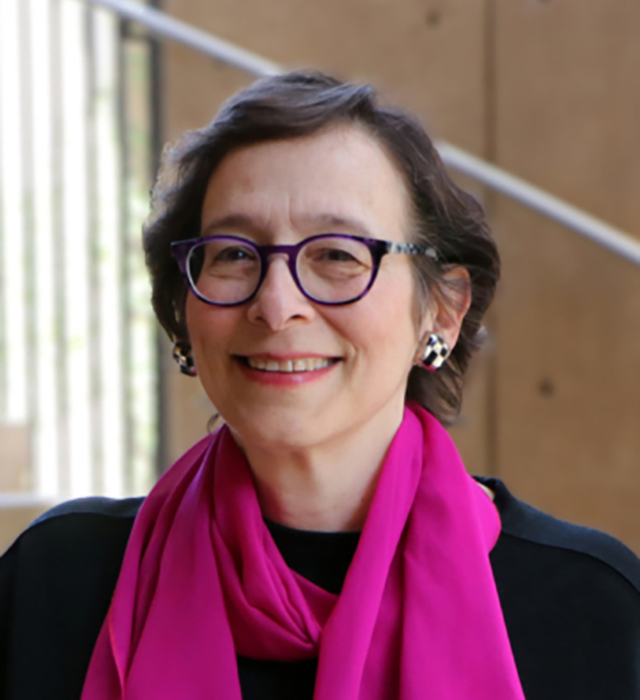 “The Supreme Court and the Protection of American Democracy"
“The Supreme Court and the Protection of American Democracy"
September 18, 2023
Pamela S. Karlan
Kenneth and Harle Montgomery Professor of Public Interest Law
Co-Director, Supreme Court Litigation Clinic
Stanford Law School
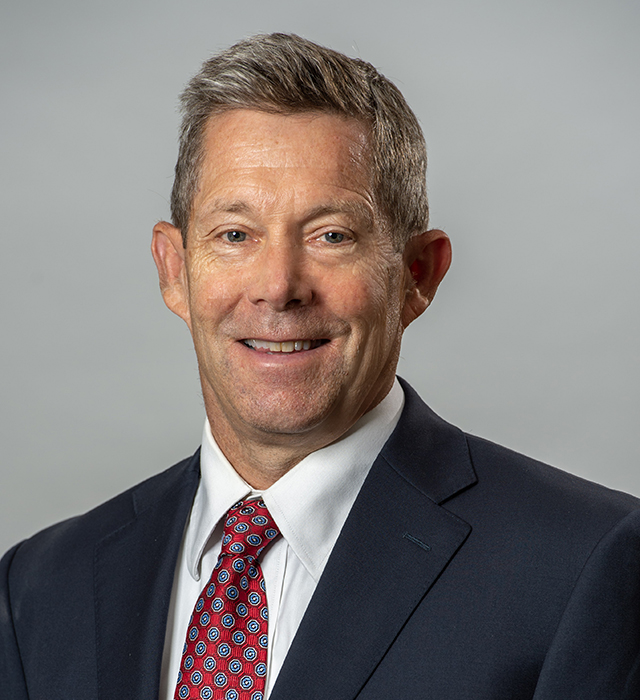 “Role of State Courts and State Constitutions in Our American Legal System"
“Role of State Courts and State Constitutions in Our American Legal System"
October 25, 2022
Chief Judge Sutton
Chief Judge of the United States Court of Appeals for the Sixth Circuit
AI Focus
May 8 & 15, 2025
Professor Sharona Hoffman, Joseph P. McMenamin, Maulik Shah, Professor Kelsey Schweiberger,
Professor Michelle M. Mello, Adjunct Professor Peter D. Giglione
April 10, 2024
Dean April Barton, Professor Ryan Williams, Matthew Ferraro, Professor Jacqueline
Lipton
March 12, 2024
Professor Wes Oliver, Adjunct Professor Morgan Gray
November 9 & 16, 2021
Matthew Ferraro, Professor Riana Pfefferkorn, Professor Paweł Koros
Book Talk Series
April 29, 2025
The PURSUIT of HAPPINESS: How Classical Writers on Virtue Inspired the Lives of the
Founders and Defined America
by Jeffrey Rosen
May 9, 2024
The Great Dissent: How Oliver Wendell Holmes Changed His Mind – and Changed the History
of Free Speech in America
by Thomas Healy
May 16, 2023
Democratic Justice: Felix Frankfurter, the Supreme Court, and the Making of the Liberal
Agenda
by Brad Snyder


